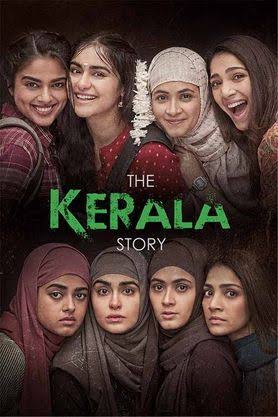“Tamil Nadu denies shadow ban on ‘The Kerala Story’, cites poor audience response as reason for screening halt; SC questions West Bengal’s ban.”

The controversy surrounding the screening of the film ‘The Kerala Story’ has taken a new turn, with the Tamil Nadu government informing the Supreme Court that the cinema owners had stopped the screening of the film due to poor audience response. The government has refuted allegations of imposing a shadow ban on the movie, stating that it had no control over the decision taken by the cinema owners. The filmmakers had approached the court alleging that the government had imposed a de facto ban on the movie.
The controversy started when the Mamata Banerjee-led West Bengal government decided to ban the film in the state, citing the need to maintain peace and avoid any incidents of hatred and violence. The filmmakers had challenged the ban in court, stating that the state government had no power to ban a film cleared by the Central Board of Film Certification. While the court is yet to take a decision on the matter, the Tamil Nadu government has stated that it had no role in the decision taken by the cinema owners to stop the screening of the film.
The government has submitted an affidavit to the Supreme Court stating that the decision to stop the screening of the film was taken by the multiplex owners based on various factors such as criticism, poor performance, and poor audience response. The government has emphasized that it had no control over the decision taken by the cinema owners and that it could not do anything to increase the audience patronage for the film. The government has also deployed security forces outside the multiplexes to ensure the safety of the moviegoers.
The controversy surrounding the film raises important questions about the role of the government in regulating the content of films. While it is true that the government has a responsibility to maintain law and order, it is equally important to protect freedom of expression. The government should not interfere with the creative expression of artists unless it is necessary to maintain law and order or to protect public morality.

The controversy surrounding ‘The Kerala Story’ is not an isolated incident. In recent years, there have been several instances where films have faced opposition from various groups for their content. The controversy surrounding the film ‘Padmavati’ is a case in point. The film faced opposition from various groups, including fringe groups, who alleged that it distorted historical facts and portrayed the Rajput community in poor light. The film eventually released after the intervention of the Supreme Court, which directed the Central Board of Film Certification to clear the film for release.
The controversy surrounding ‘The Kerala Story’ also highlights the importance of having an independent certification body that is free from political interference. The Central Board of Film Certification is responsible for certifying films for public exhibition. The board should function independently and should not be influenced by political considerations. The board should ensure that films are certified based on their artistic merit and do not promote violence or communal disharmony.
In conclusion, the controversy surrounding the screening of ‘The Kerala Story’ raises important questions about the role of the government in regulating the content of films. While it is important to maintain law and order, it is equally important to protect freedom of expression. The government should not interfere with the creative expression of artists unless it is necessary to maintain law and order or to protect public morality. The controversy also highlights the importance of having an independent certification body that is free from political interference. The Central Board of Film Certification should function independently and ensure that films are certified based on their artistic merit and do not promote violence or communal disharmony


